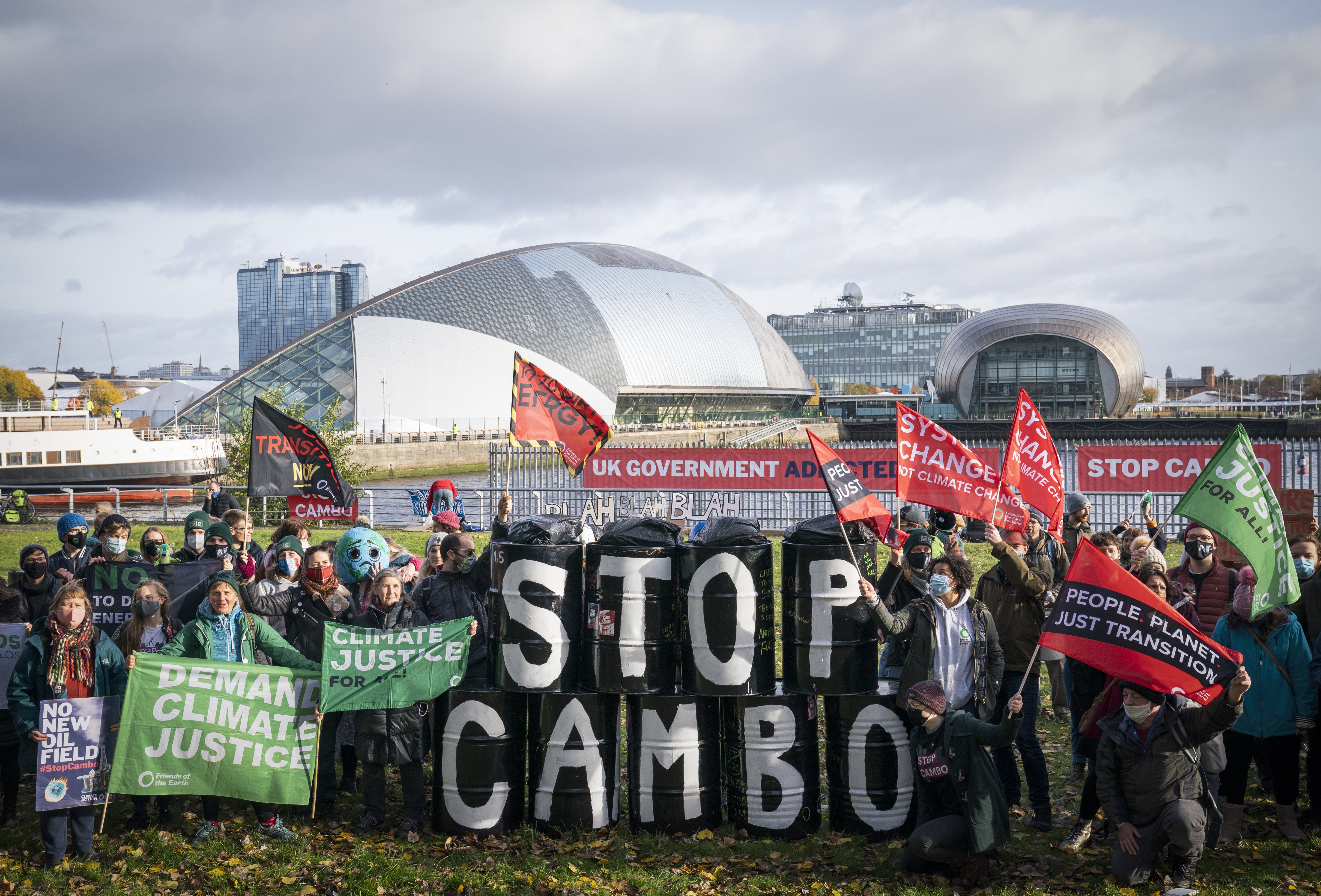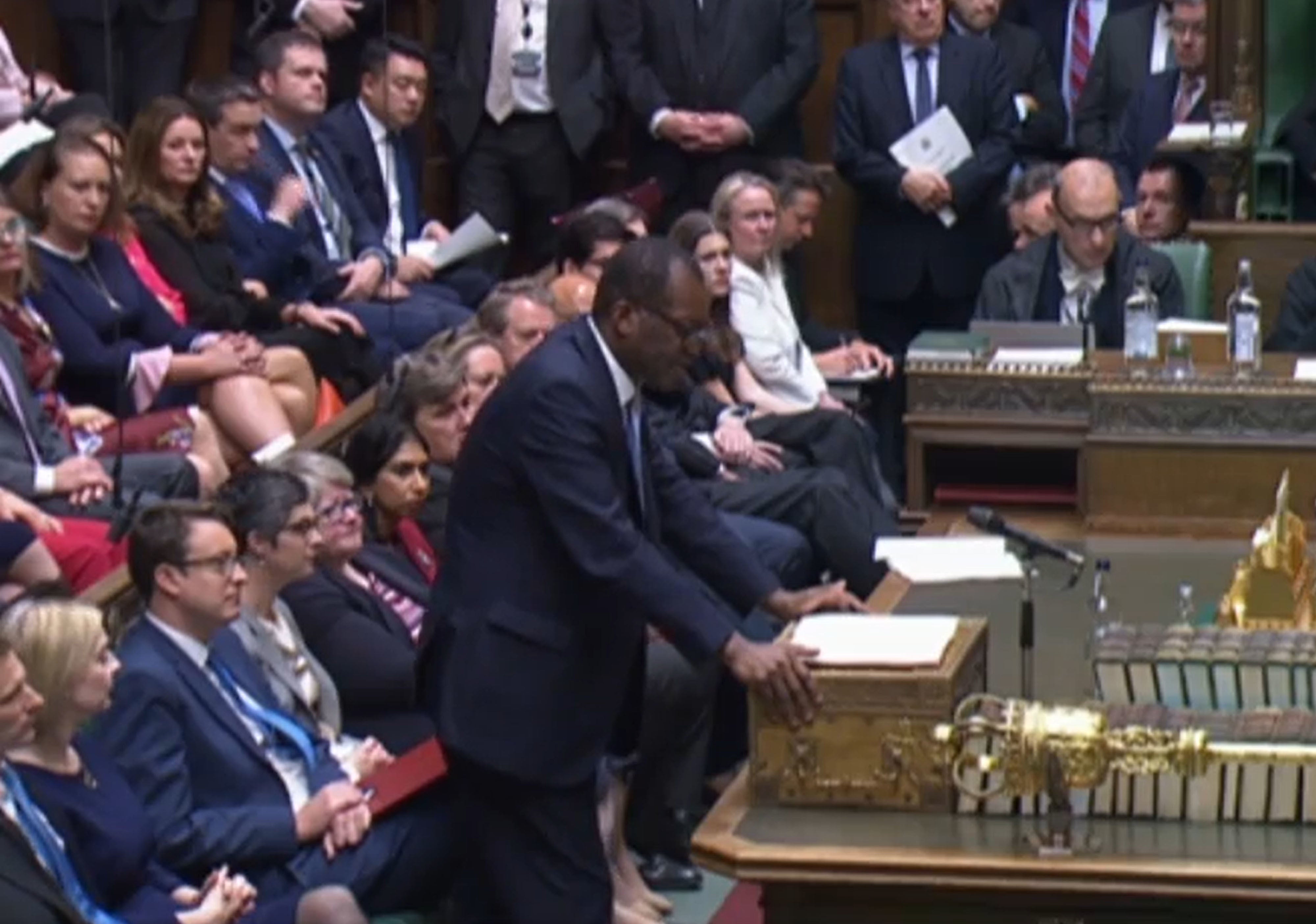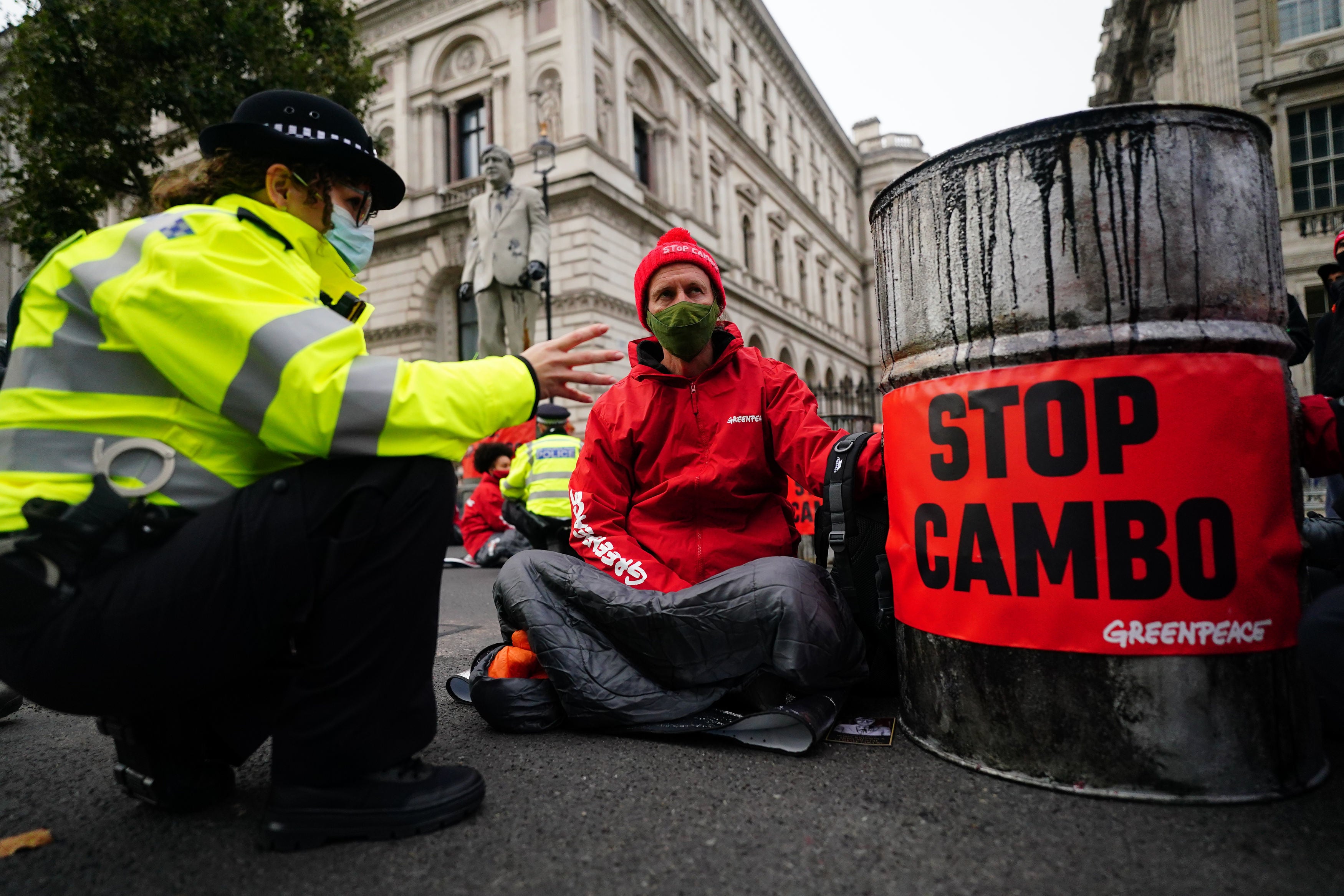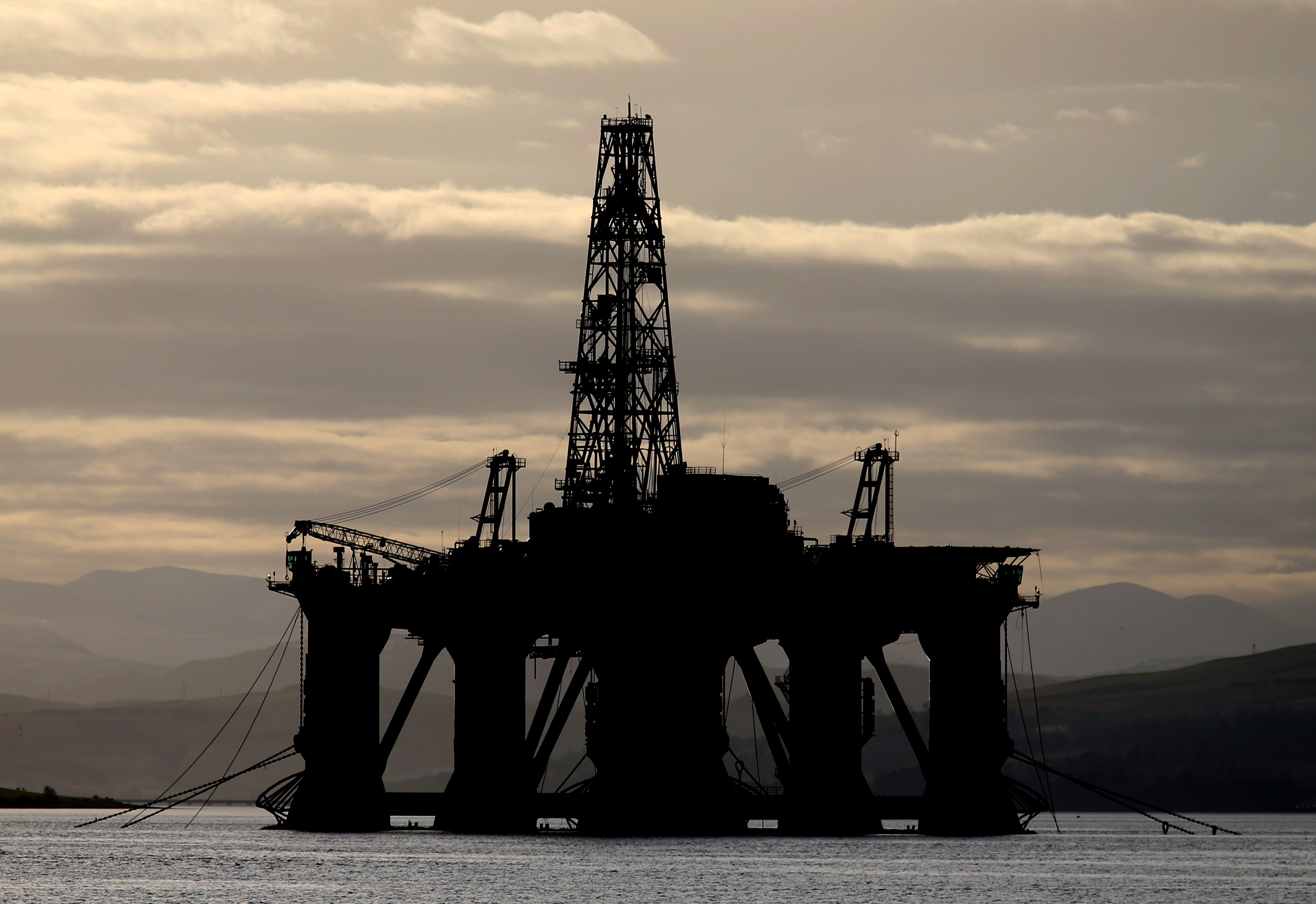Cambo oil field to be developed ‘as fast as possible’ as Tories list 138 priority projects in budget
Five oil and gas fields are among projects earmarked for accelerated development
The Cambo oil and gas field is among 138 infrastructure projects the government says will be accelerated “as fast as possible” under the new mini-Budget.
Five oil and gas fields in the North Sea and North Atlantic were earmarked for accelerated development in chancellor Kwasi Kwarteng’s announcement on Friday.
The others are: Murlach oil field, Talbot gas field, the redevelopment of the Affleck oil and gas field, and the Victory gas field.

The government has said it aims to get the vast majority of the projects under way by the end of 2023 and that they may benefit from acceleration through planning reform, regulatory reform, and “improved” development consent processes.
The list is not exhaustive and anti-fossil fuel campaigners said they did not immediately know why these projects specifically had been earmarked for acceleration.
Nearly three-quarters of the resource in these fields is oil, 80 per cent of which is exported, according to climate charity Uplift.
The gas in these fields is only enough to meet about two months of UK demand in total and will not come online for several years, the charity added. Cambo oil field accounts for two-thirds of the resource of the five listed fields.
“There is almost no national interest in or public gain from accelerating these North Sea developments,” said Tessa Khan, the director of Uplift. “They will do next to nothing for UK energy security.”
“All this is is just another signal from the government that it has the oil and gas industry’s back, an industry that is profiteering while millions of people in this country are being forced into fuel poverty,” she added.

Liz Truss’s government has said it plans to boost domestic energy production in order to bolster energy security.
The Business Department announced plans on Thursday for a new oil and gas licensing round, to be launched by the North Sea Transition Authority in October, expected to lead to more than 100 new licences for oil and gas exploration in the North Sea.
Meanwhile, the government officially lifted the 2019 ban on fracking for shale gas on Thursday, despite geologists advising ministers that forecasting “large earthquakes” remains a “scientific challenge”. The announcement sparked a backlash from MPs including Conservative backbenchers.
Friends of the Earth Scotland Just Transition campaigner Ryan Morrison said that “by pledging to rush headlong into new oil and gas projects, the UK government is denying the reality of the climate emergency”.
He added: “The UK government must be clear about what corners they are going to cut, or which environmental and worker safeguards they will be scrapping in this reckless push for fossil fuels.”

Energy experts have repeatedly said boosting domestic production of fossil fuels will not help tackle a cost of living crisis that is fuelled by the high price of gas.
Top government adviser Lord Debden told The Independent earlier this week that there is no evidence that maximised fracking and North Sea extraction would have a meaningful impact on the international price of gas.
Other infrastructure projects earmarked for accelerated development include offshore wind developments, carbon capture and storage, nuclear sites, and hydrogen pipelines.
Green groups welcomed the news that the government plans to bring consent for onshore wind in line with other infrastructure, as well as an uptick in investment in energy efficiency measures to help people reduce their energy bills.
However, many were concerned that the investment insulation did not go far enough.

Sam Alvis, of the think tank Green Alliance, said: “The UK’s poorly insulated homes are some of the leakiest in Europe. A new nationwide effort to insulate people’s homes is needed to permanently bring down energy bills, not just a little top-up to an existing scheme.”
The government has said it is taking steps to increase home-grown sources of energy and reduce the UK’s reliance on foreign imports, following Vladimir Putin’s invasion of Ukraine.
But it also intends to speed up the development of clean and renewable technologies including solar and wind power.
A statement in the Treasury’s growth plan for 2022 added: “The list sets out infrastructure projects which will be accelerated as fast as possible, aiming to get the vast majority starting construction by the end of 2023.
“These projects may benefit from acceleration through planning reform, regulatory reform, improved processes or other options to speed up their development and construction, including through development consent processes.
“Presence on this list does not guarantee, where applicable, funding, planning consent or approval for other regulatory or permitting processes, and the list is non-exhaustive of all projects which may benefit from acceleration.”
Join our commenting forum
Join thought-provoking conversations, follow other Independent readers and see their replies
Comments


Bookmark popover
Removed from bookmarks